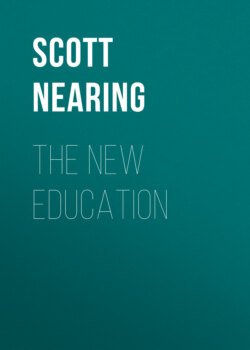Читать книгу The New Education - Scott Nearing - Страница 18
На сайте Литреса книга снята с продажи.
IV Education in the Early Home
ОглавлениеBefore the modern system of industry had its inception, while the old hand trades still held sway, at a time when the household was the center of work and pleasure, when the family made its butter, cheese, oatmeal, ale, clothing, tools, and utensils—in such an atmosphere of domestic industry, Froebel wrote his famous “Education of Man.” Note this description of the way in which a father may educate his son. “The son accompanies his father everywhere, to the field and to the garden, to the shop and to the counting house, to the forest and to the meadow; in the care of domestic animals and in the making of small articles of household furniture; in the splitting, sawing, and piling up of wood; in all the work his father’s trade or calling involves.”[17] In another passage he calls upon parents, “more particularly fathers (for to their special care and guidance the child ripening into boyhood is confided),” to contemplate “their parental duties in child guidance;"[18] and he prefaces this exhortation with a long list of illustrations, suggesting the methods which may be pursued by the farm laborer, the goose-herd, the gardener, the forester, the blacksmith, and other tradesmen and craftsmen, in the education of their sons. Any such man, Froebel points out, may take his child at the age of two or three and teach him some of the simple rules of his trade. How different is the position of the son of a workman in a modern American city! An American city dweller reading Froebel’s discussion would not conceive of it as applying in any sense to him, or to his life.
